Related Research Articles
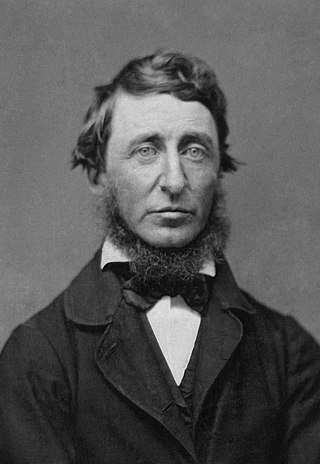
Henry David Thoreau was an American naturalist, essayist, poet, and philosopher. A leading transcendentalist, he is best known for his book Walden, a reflection upon simple living in natural surroundings, and his essay "Civil Disobedience", an argument in favor of citizen disobedience against an unjust state.
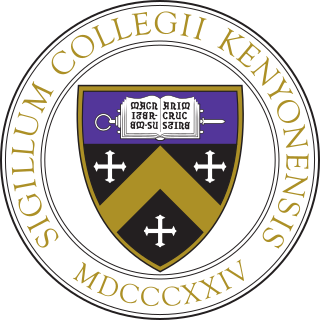
Kenyon College is a private liberal arts college in Gambier, Ohio, United States. It was founded in 1824 by Episcopal Bishop Philander Chase. It is the oldest private institution of higher education in the state of Ohio and enrolls approximately 1,800 undergraduate students. Students choose from over 50 majors, minors, and concentrations, including self-designed majors.

Edgar Lawrence Doctorow was an American novelist, editor, and professor, best known for his works of historical fiction.

John Crowe Ransom was an American educator, scholar, literary critic, poet, essayist and editor. He is considered to be a founder of the New Criticism school of literary criticism. As a faculty member at Kenyon College, he was the first editor of the widely regarded Kenyon Review. Highly respected as a teacher and mentor to a generation of accomplished students, he also was a prize-winning poet and essayist. He was nominated for the 1973 Nobel Prize in Literature.
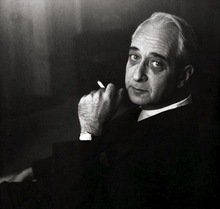
Lionel Mordecai Trilling was an American literary critic, short story writer, essayist, and teacher. He was one of the leading U.S. critics of the 20th century who analyzed the contemporary cultural, social, and political implications of literature. With his wife Diana Trilling, whom he married in 1929, he was a member of the New York Intellectuals and contributor to the Partisan Review.

Mark Van Doren was an American poet, writer and critic. He was a scholar and a professor of English at Columbia University for nearly 40 years, where he inspired a generation of influential writers and thinkers including Thomas Merton, Robert Lax, John Berryman, Whittaker Chambers, and Beat Generation writers such as Allen Ginsberg and Jack Kerouac. He was literary editor of The Nation, in New York City (1924–1928), and its film critic, 1935 to 1938.
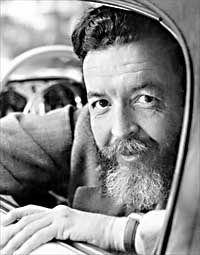
Randall Jarrelljə-REL was an American poet, literary critic, children's author, essayist, and novelist. He was the 11th Consultant in Poetry to the Library of Congress—a position that now bears the title Poet Laureate of the United States.

Francis Otto Matthiessen was an educator, scholar and literary critic influential in the fields of American literature and American studies. His best known work, American Renaissance: Art and Expression in the Age of Emerson and Whitman, celebrated the achievements of several 19th-century American authors and had a profound impact on a generation of scholars. It also established American Renaissance as the common term to refer to American literature of the mid-nineteenth century. Matthiessen was known for his support of liberal causes and progressive politics. His contributions to the Harvard University community have been memorialized in several ways, including an endowed visiting professorship.

Reginald Horace Blyth was an English writer and devotee of Japanese culture. He is most famous for his writings on Zen and on haiku poetry.

Lewis Hyde is a scholar, essayist, translator, cultural critic and writer whose scholarly work focuses on the nature of imagination, creativity, and property.

Richard Georg Salomon was an historian of eastern European medieval history and historian of the Episcopal Church in the United States, who taught at the University of Hamburg in Germany and at Kenyon College and its Episcopal Church seminary Bexley Hall in Ohio USA.
Gordon Keith Chalmers was a scholar of seventeenth-century English thought and letters, president of Rockford College and Kenyon College, and a national leader in American higher education.
Perry Carlton Lentz is an author and professor emeritus of English language and literature at Kenyon College in Gambier, Ohio.

A Week on the Concord and Merrimack Rivers (1849) is a book by American writer Henry David Thoreau (1817–1862). It recounts his experience on a boat trip with his brother on the Concord River and Merrimack River.
Carl Frederick Hovde was an American educator who from 1968 until 1972 was the Dean of Columbia College, the undergraduate division of Columbia University. In that position, he served an important role in restoring order and calm on the campus after the six-week-long student protests in spring 1968 that had been led by the Students for a Democratic Society.
Odell Shepard was an American professor, poet, and politician who was the 86th Lieutenant Governor of Connecticut from 1941 to 1943. He won a Pulitzer Prize in 1938.
Robb Forman Dew was an American writer known for fiction that dealt sensitively with the emotions of daily life and the ties that bind people together as families. She described writing as "a strange absorption about this alternate world and the way it mixes with your real life."
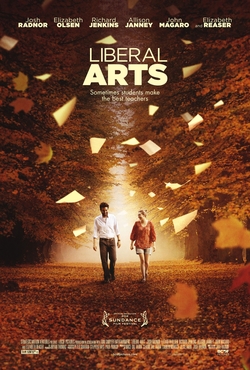
Liberal Arts is a 2012 American comedy-drama film, written and directed by Josh Radnor. It tells the story of 35-year-old Jesse (Radnor) who has a romantic relationship with Zibby, a 19-year-old college student. The film premiered at the 2012 Sundance Film Festival in January 2012.
Taylor Stoehr (1931–2013) was an American professor and author. He edited several volumes of Paul Goodman's work as his literary executor.
Elizabeth Hall Witherell is a literary historian and scholarly editor. Since 1980, she has been the editor-in-chief of The Writings of Henry D. Thoreau, a project founded in 1966 that aims to provide, for the first time, accurate and complete texts of the published works, the Journal, and the correspondence of the 19th century American scientific naturalist, transcendalist, and writer Henry David Thoreau (1817-1862). Witherell served as President of the Association for Documentary Editing from 1992 to 1993 and as President of the Thoreau Society from 1996 to 2000.
References
- ↑ "Denham Sutcliffe, Kenyon Professor" (obituary). New York, New York: The New York Times, March 1, 1964 (subscription required).
- ↑ Marwala, Tshilidzi. "The Rise and Fall of the Liberal Arts Degree," in VITA , Michaelmas 2021, pp. 6-7 (retrieved online May 31, 2024). Johannesburg, South Africa: St. John's College.
- ↑ "Denham Sutcliffe, Kenyon Professor," The New York Times, March 1, 1964.
- ↑ "Denham Sutcliffe." Gambier, Ohio: The Kenyon Review, retrieved online May 31, 2024.